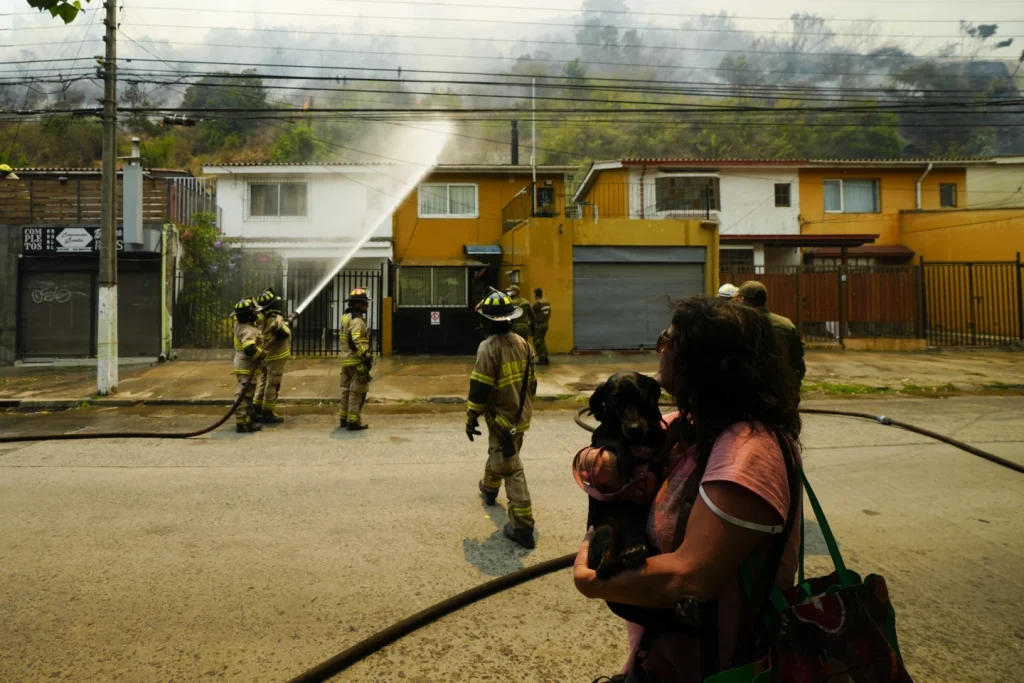The recent devastating forest fires in the central region of Chile have brought about a profound sense of tragedy and loss. The toll on human life, with at least 46 reported deaths, and the destruction of over 1,100 homes, has left the nation reeling.
President Gabriel Boric, in a solemn address to the nation, underscored the gravity of the situation, cautioning that the death toll may rise further as firefighters battle to contain four large fires raging in the Valparaiso region.
The urgency of the situation was emphasized by President Boric, who implored citizens to heed evacuation orders without delay.
The rapidly advancing fires, exacerbated by adverse climatic conditions characterized by high temperatures, strong winds, and low humidity, have posed formidable challenges to containment efforts.
The President’s call for cooperation with rescue workers underscores the critical need for a unified response to this crisis.
Interior Minister Carolina Tohá’s disclosure of 92 ongoing forest fires in the central and southern regions, attributed in part to unusually high temperatures, further accentuates the scale of the catastrophe.
The most severe blazes have been concentrated in the Valparaíso region, prompting mass evacuations and compelling thousands of residents to abandon their homes in the face of imminent danger.
The impact of the fires extends beyond the immediate vicinity, with residents in areas distant from the infernos advised to remain indoors.
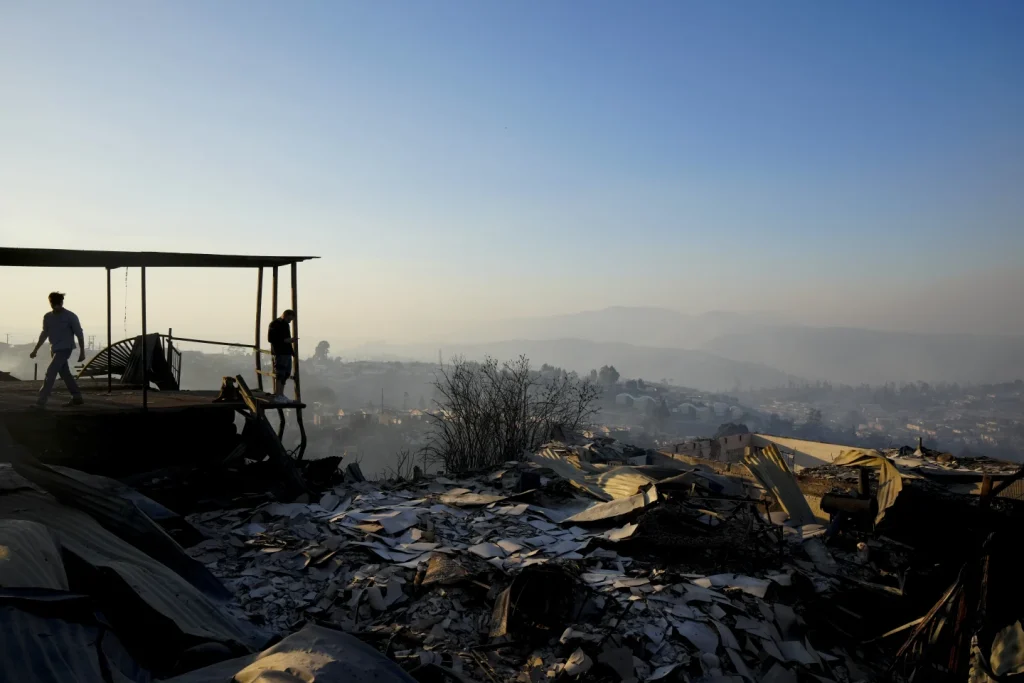
This measure aims to facilitate unimpeded access for emergency vehicles, including fire engines and ambulances, as they navigate the roads to respond to the crisis.
Of particular concern are the fires near the towns of Quilpué and Villa Alemana, which have ravaged over 8,000 hectares (19,770 acres) since their outbreak on Friday.
The peril posed by one of these fires to the coastal resort town of Viña del Mar has already resulted in significant devastation in some neighborhoods, highlighting the widespread and far-reaching impact of the crisis.
The unfolding tragedy in Chile serves as a stark reminder of the devastating consequences of natural disasters, and the urgent need for coordinated and resolute action to mitigate their effects.
As the nation mourns the lives lost and grapples with the extensive destruction, it is imperative that all available resources be mobilized to provide relief and support to those affected.
In times of such profound adversity, the resilience and unity of the Chilean people will be crucial in navigating the arduous path to recovery.
The international community’s solidarity and support will also be instrumental in assisting Chile as it endeavors to overcome this calamity and rebuild the lives and communities shattered by the fires.
In Villa Independencia, a picturesque hillside neighborhood nestled on the eastern fringes of the town, a devastating scene of destruction unfolded as several blocks of homes and businesses succumbed to the ravages of fire.
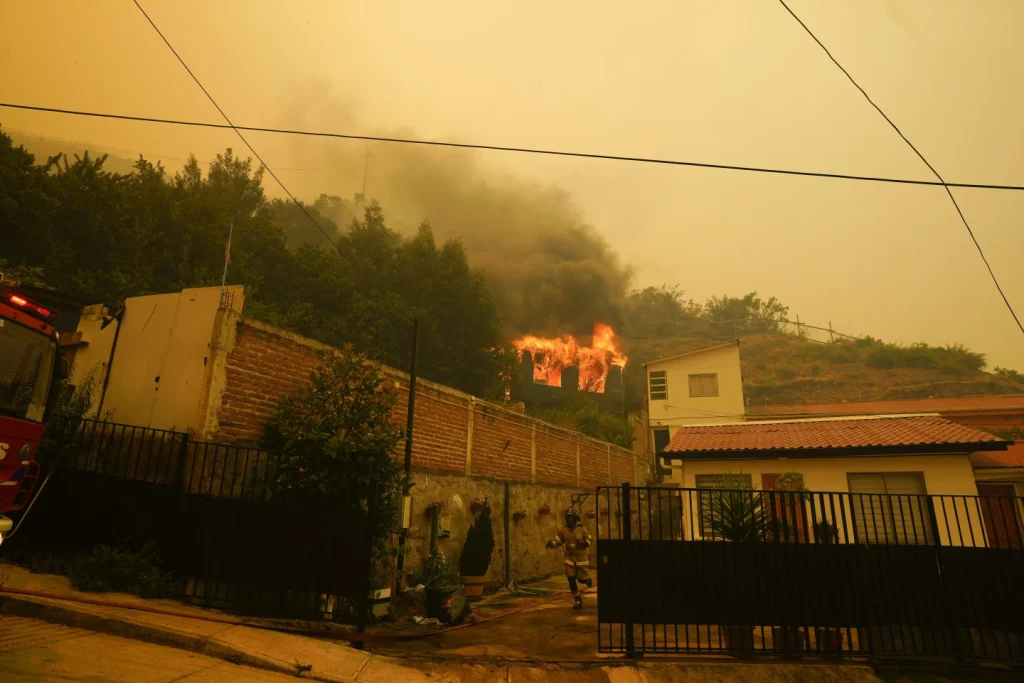
The once serene streets, now transformed into a haunting tableau, were strewn with the charred remains of cars, their windows shattered, while a thick layer of ash blanketed the ground.
Amidst this grim tableau, Rolando Fernández, a long-time resident, expressed his disbelief and despair at the calamity that had befallen his community. “I’ve been here 32 years, and never imagined this would happen,” he lamented, his voice tinged with a mix of sorrow and incredulity.
Recounting the harrowing events, Fernández recalled the fateful Friday afternoon when he first spotted the telltale signs of a fire igniting on a nearby hill.
In a mere 15 minutes, the once tranquil locale was engulfed in a maelstrom of flames and billowing smoke, compelling its inhabitants to flee for their very lives. “I’ve worked my whole life, and now I’m left with nothing,”
Fernández mourned, encapsulating the profound sense of loss and desolation that had enveloped the community.
In response to this crisis, authorities swiftly mobilized resources, establishing three shelters in the Valparaíso region and deploying a formidable contingent of 19 helicopters and over 450 firefighters to combat the relentless blazes, as reported by Tohá.
The collective efforts of these dedicated responders stand as a testament to the resilience and solidarity of the community in the face of adversity, offering a glimmer of hope amidst the despair that has gripped Villa Independencia.
The raging fires, situated in remote and hard-to-reach mountainous areas, have brought about a multitude of challenges, particularly in neighborhoods perched precariously on the fringes of Viña del Mar.
Authorities have reported widespread power outages as a direct consequence of the inferno, with Mayor Tohá highlighting the necessity to evacuate four hospitals and three nursing homes for the elderly in the Valparaíso region.
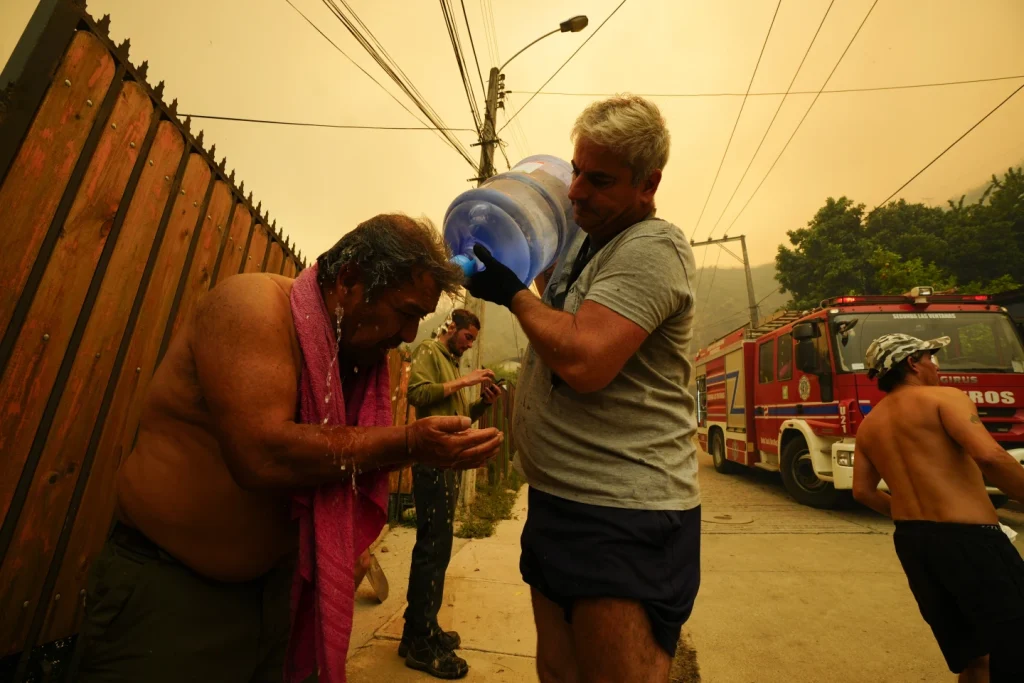
Additionally, the fire has wreaked havoc on the region, leading to the destruction of two bus terminals, as confirmed by the interior minister.
The exacerbation of the situation can be attributed to the El Niño weather pattern, which has precipitated droughts and uncharacteristically high temperatures across the western expanse of South America this year, thereby escalating the susceptibility to forest fires.
Notably, in January, a staggering 17,000 hectares (42,000 acres) of forests in Colombia fell victim to conflagrations following a prolonged spell of arid conditions.
The devastating impact of the forest fires in Chile is truly heartbreaking. The destruction of homes and businesses in Villa Independencia is a stark reminder of the power and unpredictability of nature.
The firsthand account of Rolando Fernández, who lost his home, highlights the profound loss and despair experienced by the affected residents.
The rapid spread of the fires, as described by Fernández, underscores the urgency and chaos of the situation, forcing people to flee for their lives with little warning.
The emotional toll of losing everything after a lifetime of hard work, as expressed by Fernández, is deeply moving and speaks to the human tragedy unfolding in the wake of the fires.
The mobilization of shelters, helicopters, and firefighters in the Valparaíso region demonstrates the concerted efforts to combat the blazes and provide support to those affected.
The challenges posed by the difficult terrain, such as the mountainous areas and precarious neighborhoods, further compound the already arduous task of containing the fires.
The widespread impact of the fires, including power blackouts, evacuations of hospitals and nursing homes, and destruction of infrastructure like bus terminals, underscores the far-reaching consequences of the disaster.
The disruption and displacement caused by the fires are immense, affecting not only homes and livelihoods but also essential services and facilities.
The link to the El Niño weather pattern and its role in exacerbating droughts and raising temperatures in South America sheds light on the broader environmental factors contributing to the increased risk of forest fires.
The interconnectedness of climate patterns and natural disasters underscores the need for comprehensive and proactive measures to address these challenges.
The reference to the devastating forest fires in Colombia earlier in the year serves as a sobering reminder of the broader regional impact of such environmental crises.
The scale of destruction in Colombia, with thousands of hectares of forests lost, further emphasizes the urgency of addressing the underlying factors driving these catastrophic events.
In conclusion, the forest fires in Chile are a poignant reminder of the profound impact of natural disasters on communities and ecosystems.
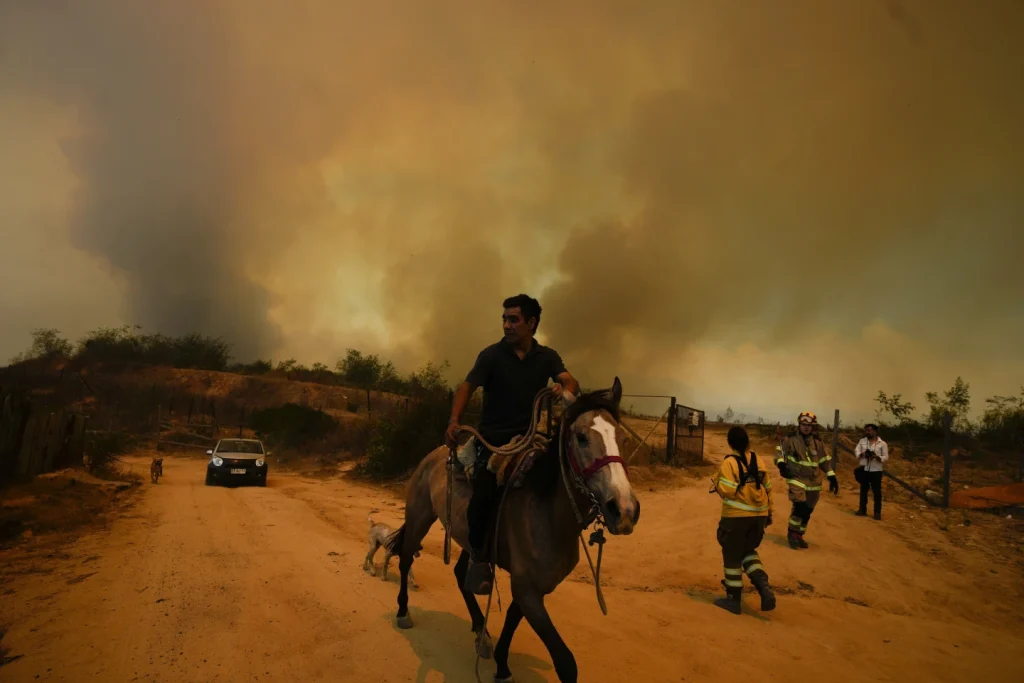
The human stories of loss and resilience, coupled with the broader implications for infrastructure and public services, underscore the need for coordinated responses to mitigate the effects of such crises.
Addressing the underlying environmental factors, such as climate patterns and droughts, is crucial in building resilience and safeguarding communities against similar disasters in the future.
